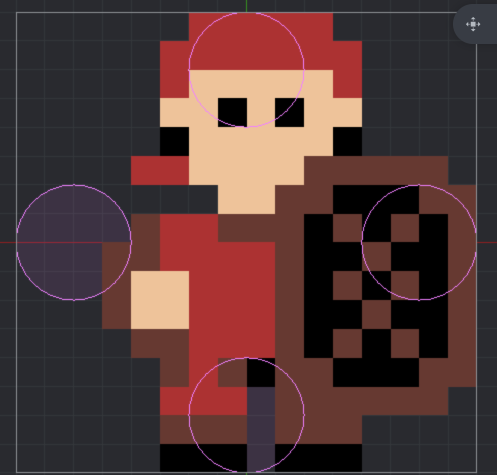Back to work on this.
Cleaned up the movement by having the player align itself to a grid during movement.
When the player moves along the x axis, it realigns along the y axis.
if state.is_pressed(hash("a")) then
if not self.blocked.west then
local pos = go.get_position()
local dir = vmath.vector3(1, 0, 0)
local new_pos = pos - dir
new_pos.y = round(new_pos.y/8) * 8
go.set_position(new_pos)
sprite.set_hflip(".", true)
play_animation(self, hash("player_walking"))
self.facing_dir = "west"
end
end
And vice versa.
elseif state.is_pressed(hash("w")) then
if not self.blocked.north then
local pos = go.get_position()
local dir = vmath.vector3(0, 1, 0)
local new_pos = pos + dir
new_pos.x = round(new_pos.x/8) * 8
go.set_position(new_pos)
play_animation(self, hash("player_walking_north"))
self.facing_dir = "north"
The round function:
local function round(n)
return n % 1 >= 0.5 and math.ceil(n) or math.floor(n)
end
This method prevents the player from getting snagged on obstacles as well as makes it easier for them to position themselves to enter tight spaces.
Example:
(Notice how when the character is unable to enter a passage, the player doesn’t have to “fight” to find the pixel perfect vector to enter, because the game aligns the player to the grid)
To prevent movement across tiles, I’m using tile map collisions. The player has 4 collisions that use triggers to block the movement.
if message_id == hash("trigger_response") then
if sender.fragment == hash("player_north") then
if message.enter then
self.blocked.north = true
else
self.blocked.north = false
end
elseif sender.fragment == hash("player_south") then
if message.enter then
self.blocked.south = true
else
self.blocked.south = false
end
elseif sender.fragment == hash("player_east") then
if message.enter then
self.blocked.east = true
else
self.blocked.east = false
end
elseif sender.fragment == hash("player_west") then
if message.enter then
self.blocked.west = true
else
self.blocked.west = false
end
end
end
The following info was helpful for doing this:
